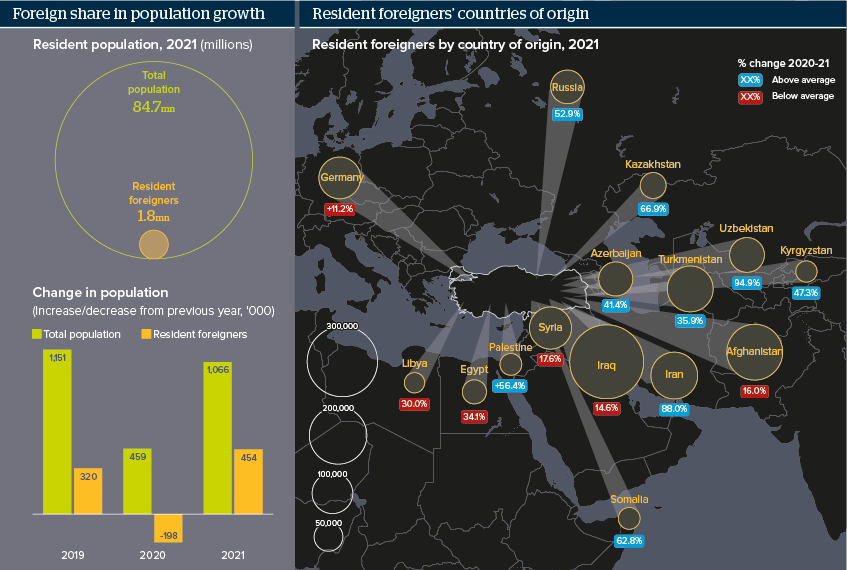Foreigners are big part of Turkey’s population growth
Without immigrants, mostly from the Middle East and CIS, Turkey’s population growth would be much slower
Source: Turkish Statistical Institute, results of Address Based Population Registration System
Outlook
Turkey’s population rose by less than half a million in 2020, but by more than 1 million in 2021. The totals include resident foreigners with a residence/work permit, valid address or international protection identity document, but exclude Syrians under temporary protection and those with temporary permits (less than three months’ duration).
Economic migrants may play a large part. Lower population growth in 2020, when resident foreigner numbers fell by nearly 200,000, coincided with the height of the COVID-19 pandemic. In 2021, those numbers rebounded, forming 43% of that year’s population growth. Those unemployed by lockdowns probably went back to their home countries and returned as restrictions eased.
Impacts
- Turkey seems to be relying on migrants to offset a deceleration in the rate of natural increase among the native-born population.
- Except for Germany (which has a large ethnic Turkish minority), the top 15 migrant source countries are in Turkey’s neighbourhood.
- Some migrants could be fleeing political conditions at home, but this seems inconsistent with an exodus from Turkey in 2020.
- The rising numbers of foreign workers will be seen as competing for jobs and services, judging by recent area quotas on asylum-seekers.
